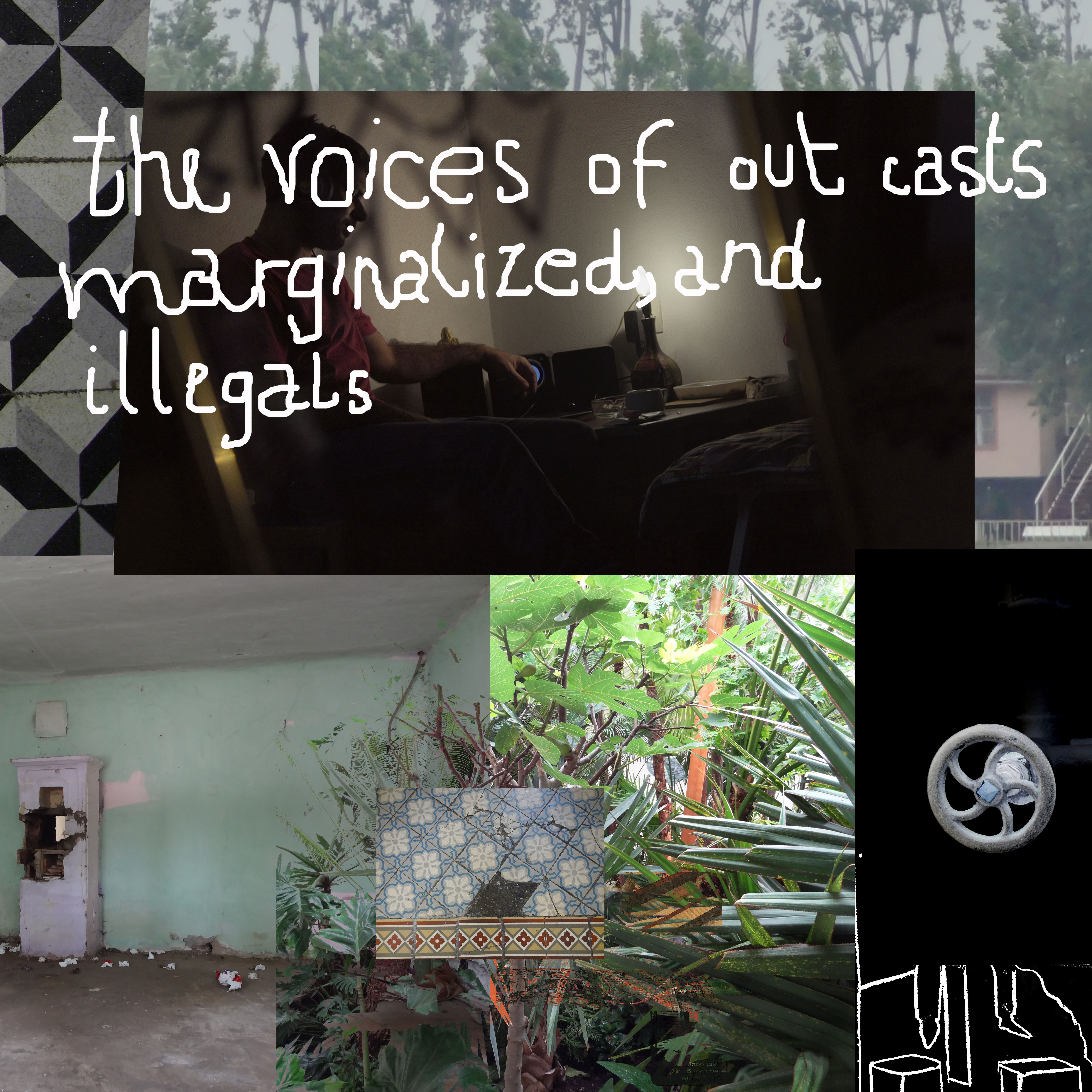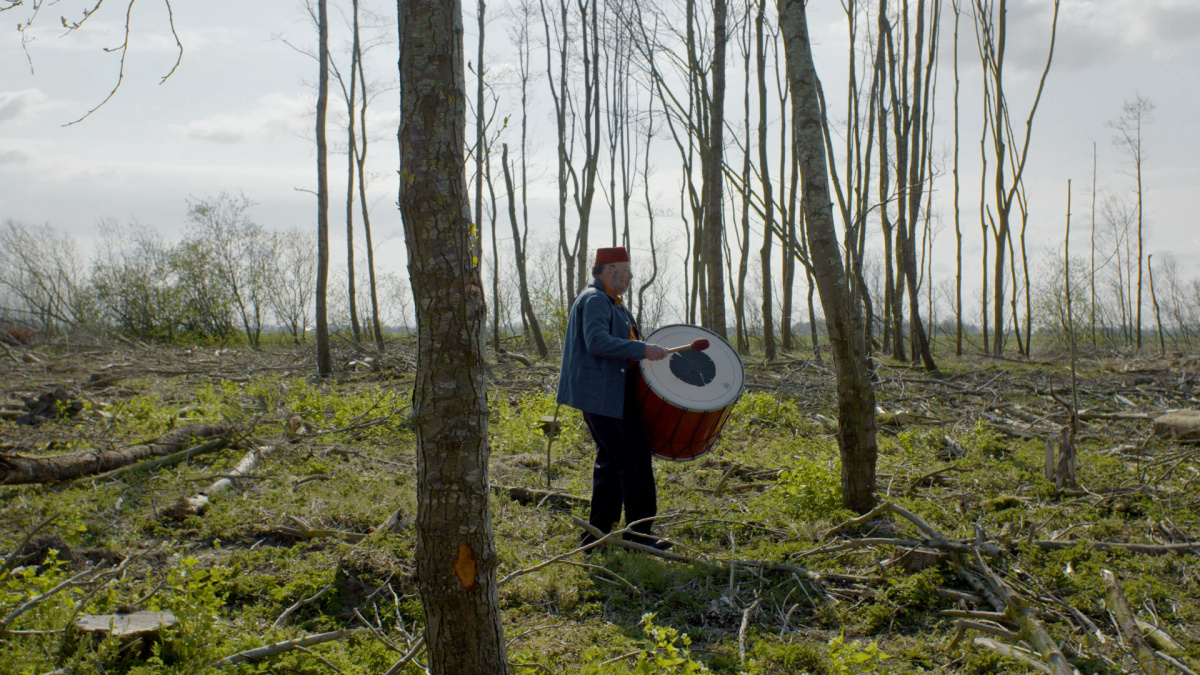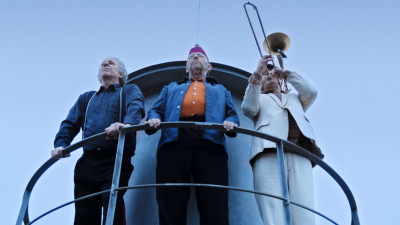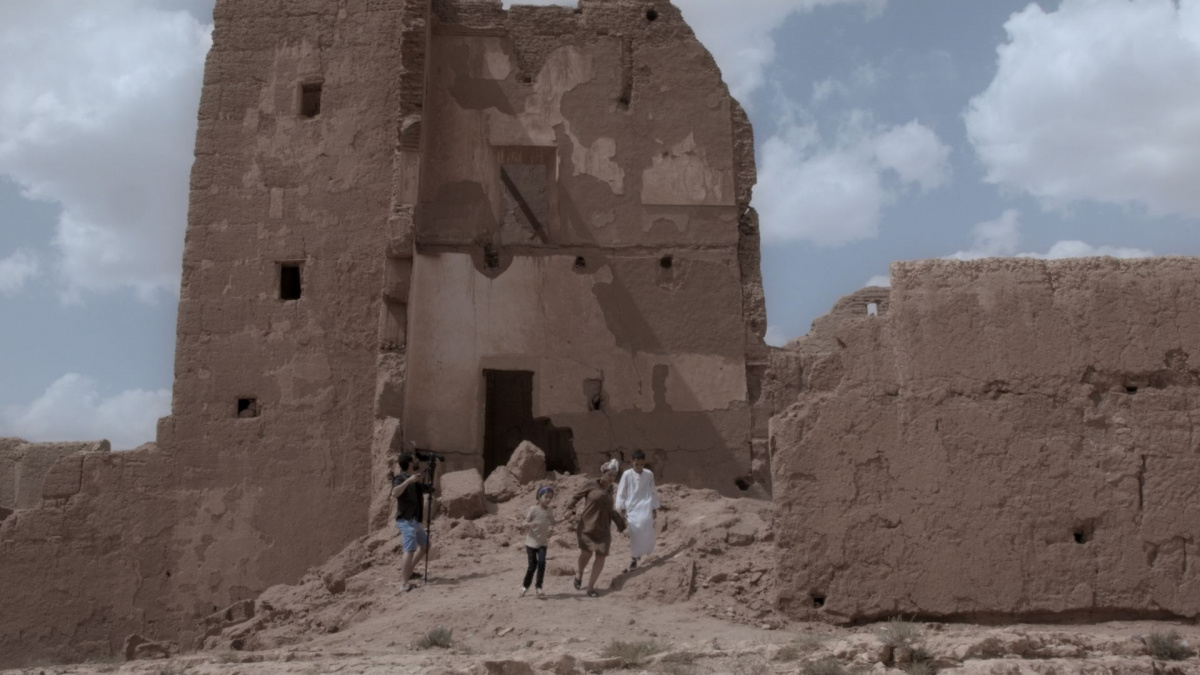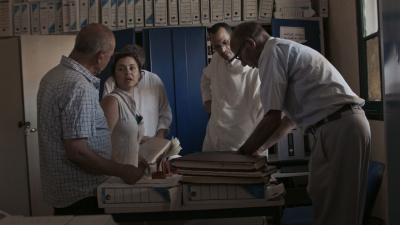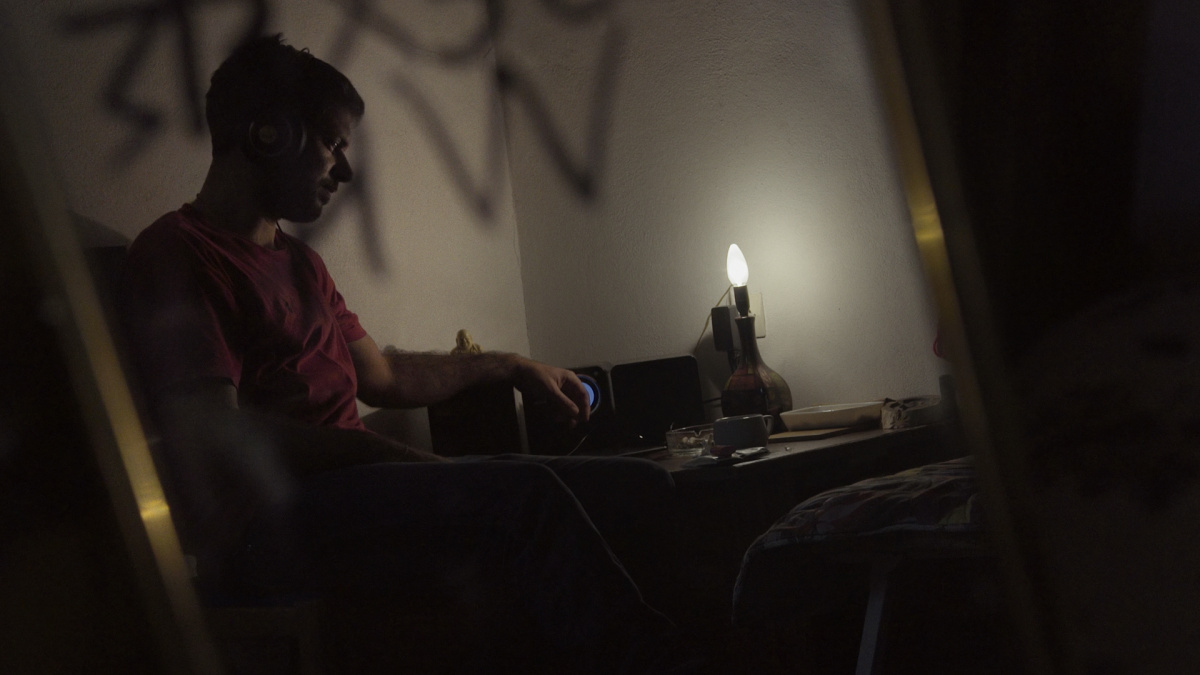
Finding Refuge in Rebetiko
Don’t Rush is a languid film thick with affection for rebetiko, the Greek urban folk music essentially made by refugees. Musing on what is now viewed as a rich cultural tradition started by outcasts and illegals with a penchant for hashish, Clive Bell teases out parallels to our intrepid protagonists, and a telling lesson for an ongoing humanitarian crisis.
→ Check all articles of this special
→ Download PDF with introduction and table of contents
This evening we’re going to hang out on a Greek island with three young men: Giannis, his brother and his cousin. First we see one of them alone in rapture, merging his voice with an old song of hopeless amor: «I’m burning, I’m burning/I’m drowning, I’m drowning/Throw me into the deep sea». He’s watching the 1983 film Rembetiko, but his eyes are squeezed shut and the music has possessed him. The musician’s cry of «Aman! Aman!» (alas!) shakes his whole body, as Sotiria Leonardou’s voice flows through him. The melody itself agonizes between the major and minor third of the scale, an exotic mode that sits in Europe while turning its eyes to the East.
A Cultural Tradition Founded in Refuge
Rebetiko is essentially a music made by refugees. These are the voices of outcasts, the marginalized, and the illegals who created Greece’s down-and-dirty urban song tradition, first flowering in the hashish dens of the Ottoman Empire. Central to this tradition was the Greek population of the Turkish coast, in the cities of Smyrna (present day Izmir) and Istanbul. After a war between Greece and Türkiye, in 1923 a million Greeks fled to the mainland. Key rebetiko recordings were made by these refugees in Athens and New York. Since then, Greeks tend to rediscover rebetiko whenever repression and suffering increase: Under the colonels’ junta (1967–74), and again now in the wake of Greek economic woe and mass migration across the Aegean.
Our three protagonists are devotees of rebetiko, and Don’t Rush is a luxuriantly slow reveal, soundtracked by those old songs, lovingly played by Giannis as the humid summer evening heads towards midnight. Gradually, we learn we are on the large island of Lemnos – only 60 kilometres off the Turkish coast, and close to the heart of Greece’s current refugee crisis. Thousands of migrants – principally from Afghanistan, Syria and the Democratic Republic of Congo – are trapped in Greek camps or detention centers. Giannis is a pirate radio DJ, hanging with his family, talking to his listeners and badly missing his absent girlfriend, whose birthday is tomorrow. We watch him via a mirror: across the glass someone has scrawled «Me Trecheis» – don’t rush.
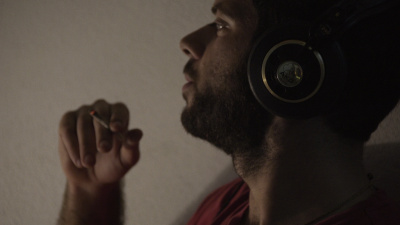
A Lesson for Today
The songs, mostly from the 1920s and 30s, are heady and pungent as if reeking of weed. Typically there’s a slow, heavy, nine-beat rhythm: two, two, two, and three. Back in the day, a smoker in the cafe would rise and dance a zeibekiko, a solitary male ritual. Don’t Rush gives us all the lyrics, often explicit about police raids, prison beatings, and getting cheated by dealers: «They didn’t feel high/It was only tobacco». But we also hear Giannis spell out why rebetiko still means so much: «As we listen to these songs our thoughts and our love go out to the refugees, who every day try to cross land and sea borders in order to reach Europe – that not only doesn’t welcome them but also barricades itself behind walls, thus becoming responsible for the many deaths and murders happening, whether in the Mediterranean, in Lampedusa, in the Aegean, in Farmakonisi, in Mytilene, in Chios. That’s why it’s our duty to take a stand, fight on the side of refugees, bring down the detention centres, fight racism, fascism and the ideology of the system we live in, that marginalizes people and kills them for the sake of profit. Refugees are our brothers.»
The radio studio-cum-living room gets hotter and sweat is wiped away. In a final reveal, the listeners are reminded that their radio station was raided a year ago, and one kilo was found. Trial is on May 9th – there’ll be no radio show that day, confides Giannis.
The film «Don't Rush» by Elise Florenty and Marcel Türkowsky was officially selected at the Norient Film Festival NFF 2021. See full program here.
This text is part of Norient’s essay publication «Nothing Sounds the Way It Looks», published in 2021 as part of the Norient Film Festival 2021.
Bibliographic Record: Rhensius, Philipp. 2021. «Editorial: NFF 2021 Essay Collection.» In Nothing Sounds the Way It Looks, edited by Philipp Rhensius and Lisa Blanning (NFF Essay Collection 2021). Bern: Norient. (Link).
Biography
Published on December 07, 2020
Last updated on June 27, 2023
Topic
What happens, when artists move from one to another country? For example, when an Arab artist replaces the big tractors in her the village with big jeeps of the West.
Snap
